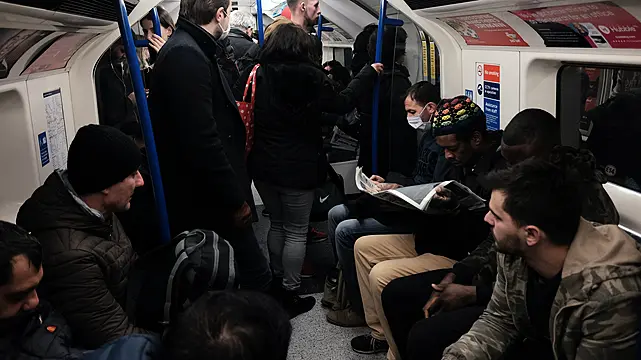Scientists from the University of Southampton’s WorldPop project also found that more than one-metre social distancing is required to be safe when travelling for one hour.
The study was based on high-speed routes in China and conducted in collaboration with several organisations from the country, including the Chinese Academy of Sciences.
The transmission risk not only relates to the distance from an infected person, but also the time in their presence
Analysis covering the spread of the virus between December 19 and March 6 found that an average of 0.32% of passengers sitting within three seats across and five in front or behind an infected person caught the disease.
Passengers travelling in seats adjacent to a sufferer had the highest chance of being infected, at 3.5%.
The transmission rate for those on the same row was 1.5%.
The research was published in the journal Clinical Infectious Diseases.
Lead investigator Dr Shengjie Lai said: “Our study shows that although there is an increased risk of Covid-19 transmission on trains, a person’s seat location and travel time in relation to an infectious person can make a big difference as to whether it is passed on.
“The findings suggest that during the Covid-19 epidemic it is important to reduce the density of passengers and promote personal hygiene measures, the use of face coverings, and possibly carry-out temperature checks before boarding.”
WorldPop director Professor Andy Tatem said: “Our research is the first to quantify the individual risk of Covid-19 transmission on public transport based on data from epidemiological investigations of disease cases and their close contacts on high-speed trains.
“It shows that the transmission risk not only relates to the distance from an infected person, but also the time in their presence.
“We hope it can help to inform authorities globally about measures needed to guard against the virus and in turn help to reduce its spread.”
Department for Transport guidance for public transport users states that if they cannot stay two-metres apart from others, they should maintain a one-metre gap “where possible” and take “suitable precautions” such as washing hands regularly and touching as few surfaces as possible.
Face coverings are mandatory across all public transport in the UK.







